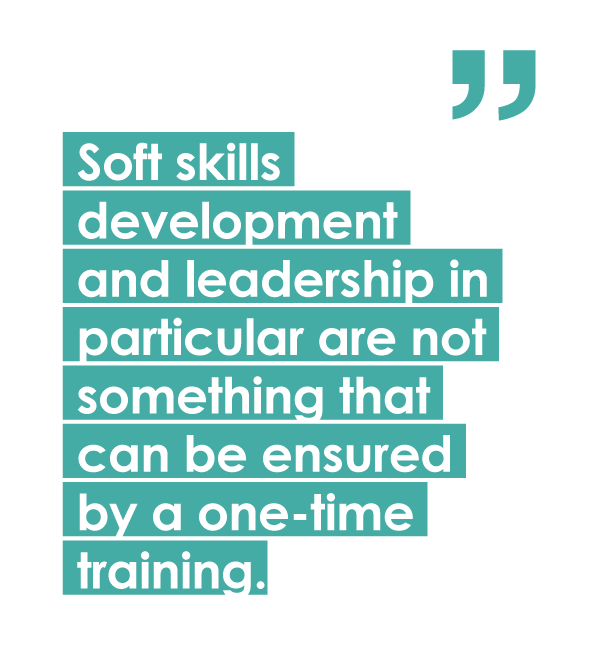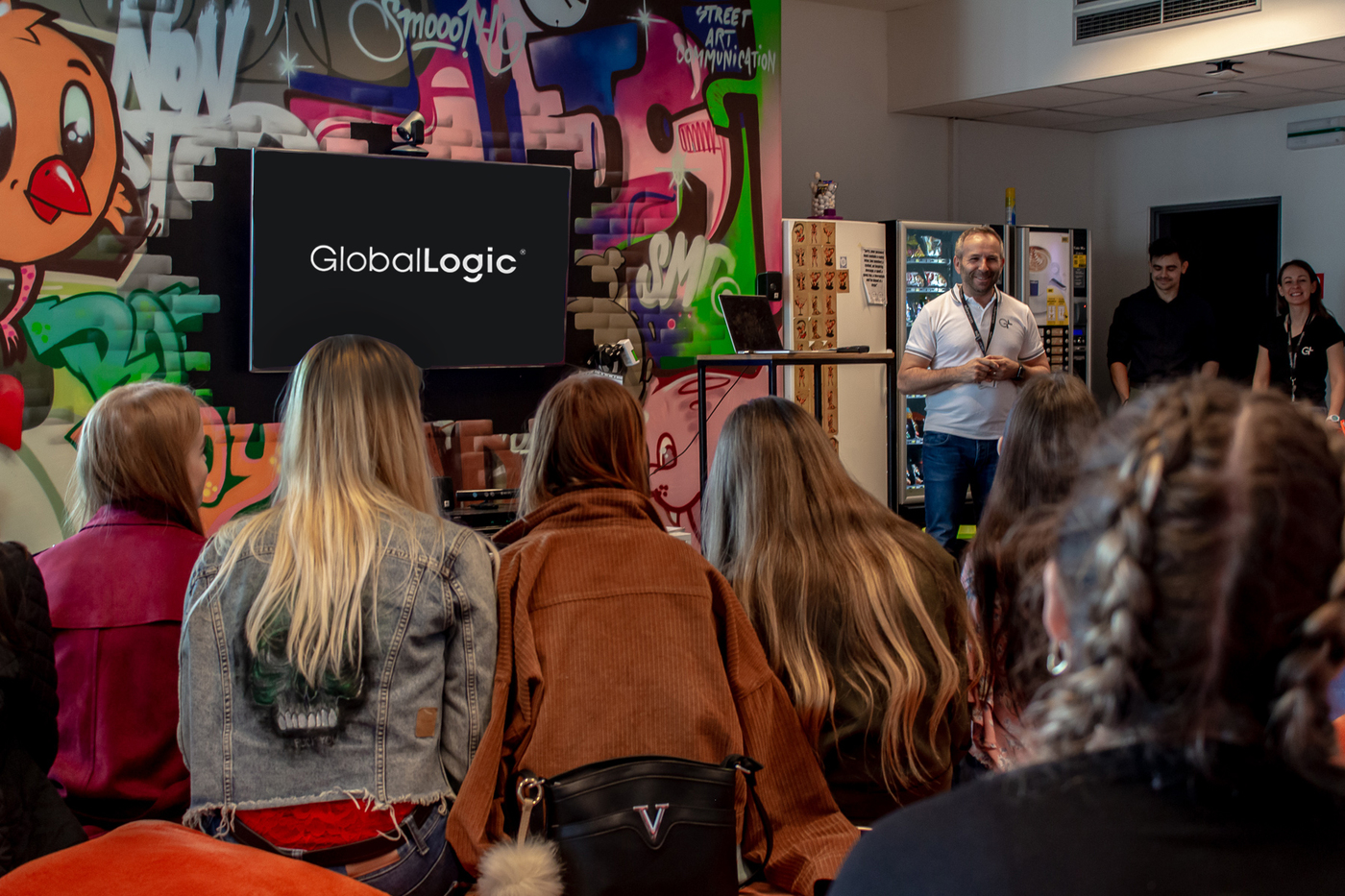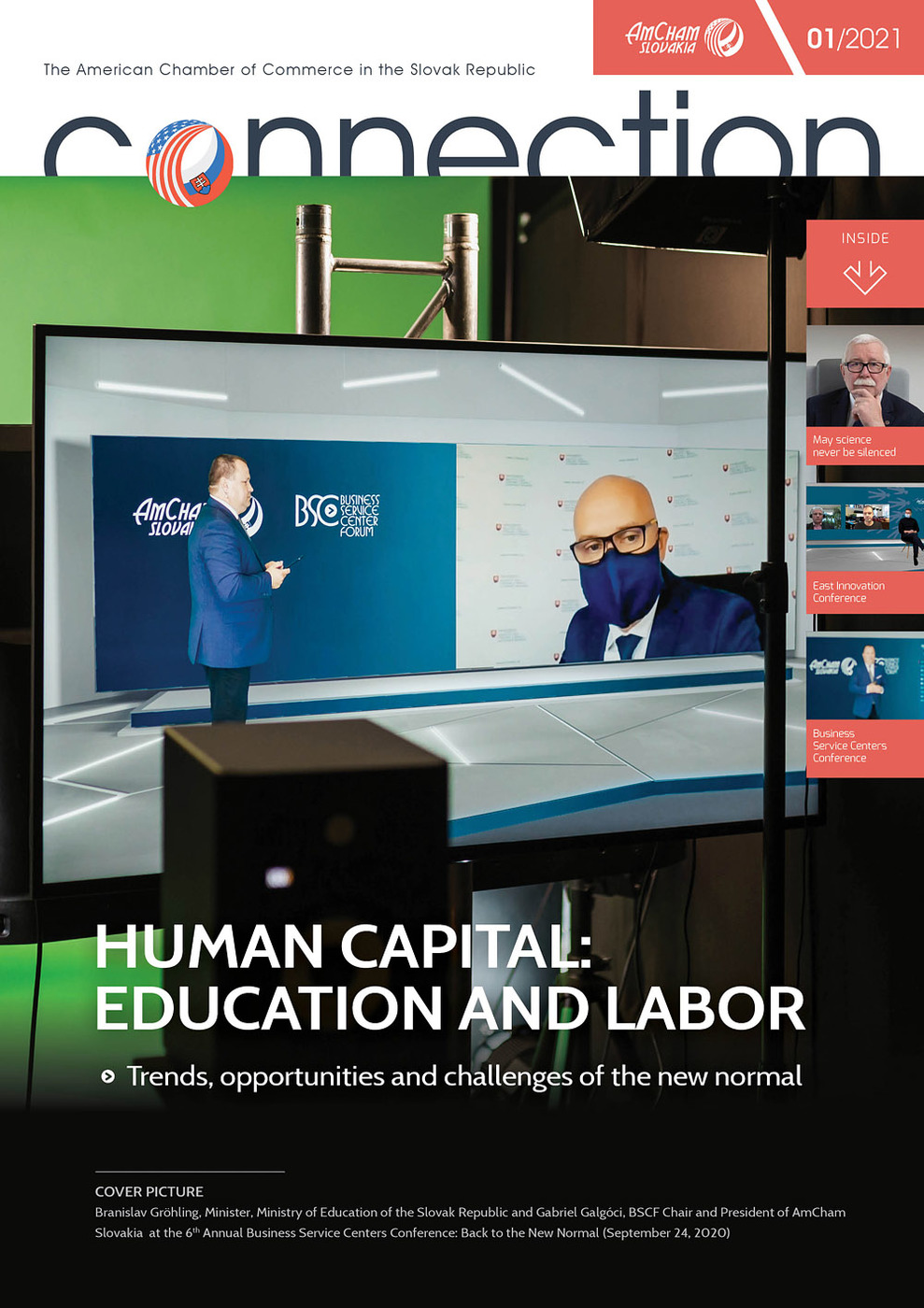In this way, L&D specialists can take part in strategic management and corporate development, and help gain or maintain its competitive advantage. Compared to the past, when education activities primarily meant the response to requests of various stakeholders in the company, this represents a great progress.
Employees entering the changing labor market – and the IT sector in particular – know their value. They expect the company to meet their expectations both in the field of technical and personal development. Apt and targeted development of people/staff increases not only their technical and soft skills, but also their engagement. Hence, we are speaking of a continuous learning process and the way of establishing an enabling environment in the company.
Technical education will always have its important place in an IT company. However, soft skills - especially leadership, communication and presentation skills - have been increasingly coming to the forefront, too. It has become a standard procedure for technical trainings to be covered by in-house trainers, as it allows for the trainings to be provided in the long-term and for their content to be modified to fit the needs of the group of trainees to the greatest extent possible. Building a community of trainers through programs such as ‘Train the Trainer’ has proven to be a good practice since, as trainers share their knowledge and experience with others, they also improve their skills, update their skill set and become tech leaders in the field. Moreover, they also develop their communication skills and their ability to work with varied groups, which represents another added value. We also see additional benefits in the time of the COVID-19 pandemic when the majority of us work from home and trainings have moved online, i.e. they have been divided into smaller blocks. Longer trainings are broken down to shorter sessions using homework assignments or e-learning platforms. When discussing specific topics, companies can share their experience with colleagues abroad or use services of external training companies.
Mentoring is another interesting form of peer learning. In-house mentors can help their mentees develop in the required areas. Mentoring as a form of education is also interesting in relation to succession, as a mentor leading the mentee can test their leadership skills in practice. Many mentees have already become successful team-leads.
Technical trainings are a great way to get to know a particular technology. However, the thing that brings even higher added value and enhances the tech skills gained, is the practical application of the things learnt – i.e. ‘on the job learning’, a chance to test the newly-gained knowledge in demo projects, etc. This option allows people to try out and test new things in a safe environment and under the supervision of an experienced technological leader. These activities usually lead to demo projects that are later applied also commercially, bringing new solutions for customers.

Even though financial motivation still ranks high, good work environment, sufficient information on corporate events or a perceptive and empathetic leader are becoming equally important. Bearing in mind said trend, a team-leads succession program has been introduced. It is a long-term development program aimed at soft-skills as well as processes. Similarly to succession, training of current leaders in the field of leadership and processes also plays an important role. Potentially the highest added value can be seen in discussions of leaders. Therefore, we have created the space where they can discuss the topics and issues they deem interesting or pressing on a monthly basis. It is a superb platform for experience sharing and enriching other colleagues. Lead-team building and raising of awareness about the company also represent interesting side-effects.
Measuring of employee engagement and of the impact of education activities on practical application will represent the next challenge for L&D. Soft skills development and leadership in particular are not something that can be ensured by a one-time training. Real development requires close attention, thorough analysis and well-planned practical application, which takes time. Current situation forces us to be more agile and organize trainings quickly and with the highest impact on an individual’s or team’s development. Therefore, it is becoming even more important to stay in touch with all relevant stakeholders and with the business as well. Growing pressure on the highest level of education content customization and on the most individual approach will force companies to analyze data from trainings and adjust the content of training to individual needs of participants as much as possible.
By means of conclusion, let me just add that, as L&D specialists, we always strive to build the most enabling corporate education and development environment possible. Let’s all keep our fingers crossed for this!

Dalibor Hajči, Senior Specialist, Learning & Development, GlobalLogic



Follow us